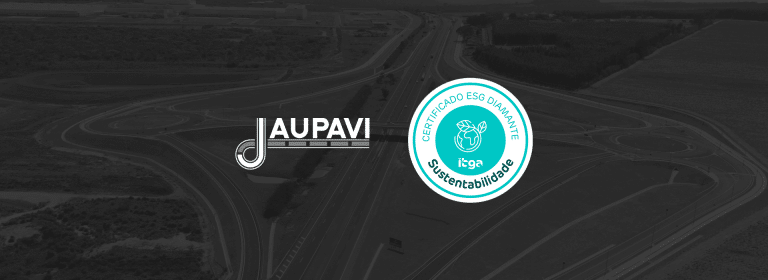
ENVIRONMENT
The awareness that every human action produces environmental and social impacts is the foundation of our culture and business vision. Therefore, each project follows the principles of environmental responsibility and includes proper monitoring of activities.
Environmental emergencies: fast and responsible action
Jaupavi understands that equipment such as convoys and spreaders, essential to our operations, pose environmental risks. That is why our response is strategic: a partnership with Ambipar, a global leader in environmental emergencies.
We ensure 24-hour readiness, with specialists prepared to act quickly in the event of incidents. In addition, we have implemented the Emergency Response Plan (ERP) in all units, reinforcing our commitment to sustainability and collective protection.
With a preventive approach and strategic partners, Jaupavi ensures greater safety for the environment, people, and the future.

Atmospheric Emissions Control
We regularly monitor atmospheric emissions generated by diesel-powered equipment used in our activities. We use the Ringelmann Scale, the same method adopted for controlling emissions from buses and trucks in the State of São Paulo, ensuring accuracy and accountability.
This scale features five levels of smoke density. The lighter the emission, the more suitable the equipment. We strictly follow the limit established by CETESB and work constantly to keep our rates well below 40%, even when inspections are not taking place.
More than complying with regulations, we strive for operational and environmental excellence. All Jaupavi equipment undergoes preventive maintenance. At the slightest sign of non-compliance, the equipment is removed from the worksite and immediately sent for repair.
Emission checks are carried out every month, and all information is recorded and organized responsibly. Taking care of the air is also taking care of the future.
Approved Suppliers
For us, taking care of the environment means looking at the entire supply chain. Every material we use goes through rigorous verification. We want to be sure that our suppliers share the same environmental commitments we follow every day.
Before any purchase, our environmental team reviews all legally required documentation, such as the CETESB operating license, IBAMA compliance certificate, Fire Department AVCB, among others. Nothing enters without being in compliance.
We work only with regulated suppliers and monitor the validity of all licenses. This control ensures our processes are safe, responsible, and aligned with the best environmental practices.
Waste
At Jaupavi, every piece of waste generated is treated with the care and attention the environment demands. We ensure correct separation by type and destination, guaranteeing that nothing is discarded improperly.
Every waste removal from the company is accompanied by a Waste Transport Manifest (MTR), a document that identifies all essential information: material type, physical state, quantity, place of origin, transporter, destination, and final disposal method.
We take full responsibility for everything we generate, reinforcing our commitment to transparent and safe environmental management.
Waste Management by Class
At Jaupavi, we treat each type of waste with the attention it requires. Our management follows technical classifications, ensuring proper and safe disposal, always in compliance with environmental legislation.
Class I Waste – Hazardous
These types of waste require special care because they present characteristics that may pose risks to health and the environment, such as flammability, toxicity, or reactivity.
We maintain a contract with a licensed and specialized company to receive this type of waste. All transportation is carried out based on a CADRI – Certificate of Environmental Interest Waste Transport – ensuring the process occurs legally and safely.
Within the company, these wastes are stored in exclusive drums or containers, in isolated, properly signposted, and suitable areas, preventing any type of incident.
Class IIA Waste – Non-Inert
These are wastes with properties such as biodegradability, combustibility, or water solubility, but which do not present a direct chemical risk. Examples include food waste and fiberglass.
We carry out an initial separation between recyclable and non-recyclable materials in specific drums. Recyclables are sent to cooperatives, while non-recyclables are sent to licensed sanitary landfills.
Class IIB Waste – Inert
These wastes maintain their characteristics over time. Examples include construction debris, sand, stones, iron, wood, glass, rubber, Styrofoam, and aluminum cans.
Disposal is carried out by specialized companies, which receive and properly process each type of material, ensuring the lowest possible environmental impact.
Environmental Preservation as a Culture
At Jaupavi, we believe that environmental preservation begins with people. That is why we maintain constant dialogue with our employees to reinforce the importance of conscious actions both inside and outside the company.
Every week, we select a different topic related to the environment. At the start of the day, our occupational safety technicians receive a support text and lead a conversation with the team. This moment goes beyond simply sharing information – it is an exchange that strengthens our daily commitment to responsible practices.
Raising awareness is the first step to transforming actions. Making it a habit is part of our culture.
Informativos
JULHO/2025
JUNHO/2025
MAIO/2025
O descarte incorreto de resíduos traz prejuízos ao Meio Ambiente, à Saúde e Segurança de todos.
ABRIL/2025
MARÇO/2025
Cumpra a legislação, siga os procedimentos e informe
irregularidades
FEVEREIRO/2025
JANEIRO/2025
Práticas para combater o Aedes aegypti
DEZEMBRO/2024
Atente-se ao descarte e o manuseio incorreto de
resíduos e produtos químicos
NOVEMBRO/2024
OUTUBRO/2024
SETEMBRO/2024
AGOSTO/2024
Fale conosco
Contato
Ouvidoria
Canal de Denúncias
desenvolvido por agência Only!